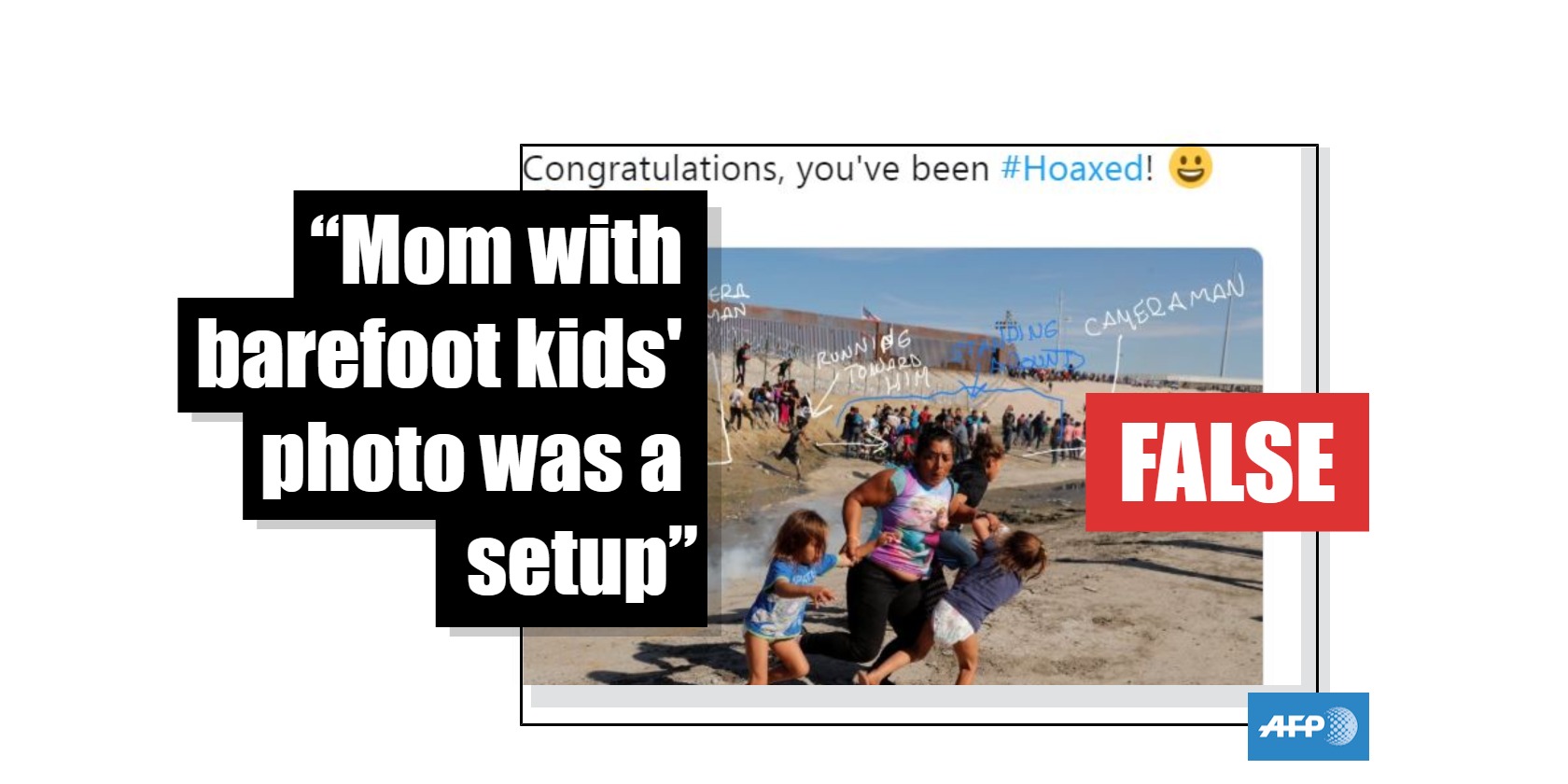
No, this photograph of a Honduran migrant and her children running from tear gas was not staged
- This article is more than seven years old.
- Published on December 3, 2018 at 23:52
- Updated on December 11, 2018 at 17:35
- 4 min read
- By Marisha GOLDHAMER, AFP Mexico
After a photograph of a Honduran migrant, named by Reuters as Maria Meza, fleeing tear gas with her young children was published by multiple news outlets, a widely shared tweet annotated the image to claim it was set-up. The main evidence that the photo is "fake" or "staged," according to that tweet and others, is that the other migrants and cameramen in the background of the image appear to be neither running nor impacted by the tear gas.
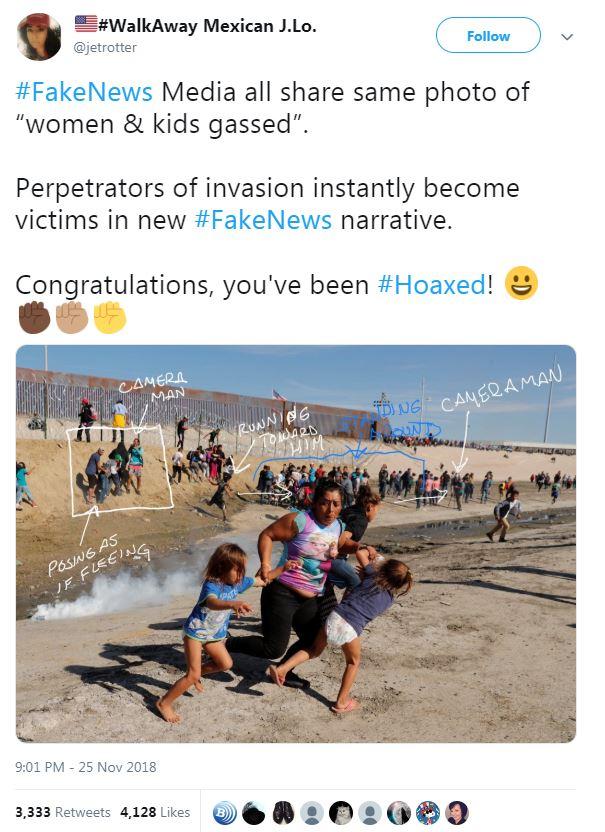
The tweets were then shared in multiple articles questioning the veracity of the image. Each article was shared thousands of times on Facebook, according to data from CrowdTangle, a social media monitoring tool.
Tear gas was fired
According to an AFP report from November 25, at least 500 migrants from the Central American caravan, including women and children, had been taking part in a peaceful demonstration in Tijuana before rushing the border.
This AFP video shows how quickly the scene unfolded after the tear gas was fired by US Customs and Border Protection.
BBC video and CTV video from the scene also shows tear gas being fired.
A billboard seen in the distance of the AFP video shows two people with their arms raised. That same billboard is visible in the BBC and CTV footage and one of the Reuters photos of Meza and her daughters, showing that all of the footage depicts the same location.
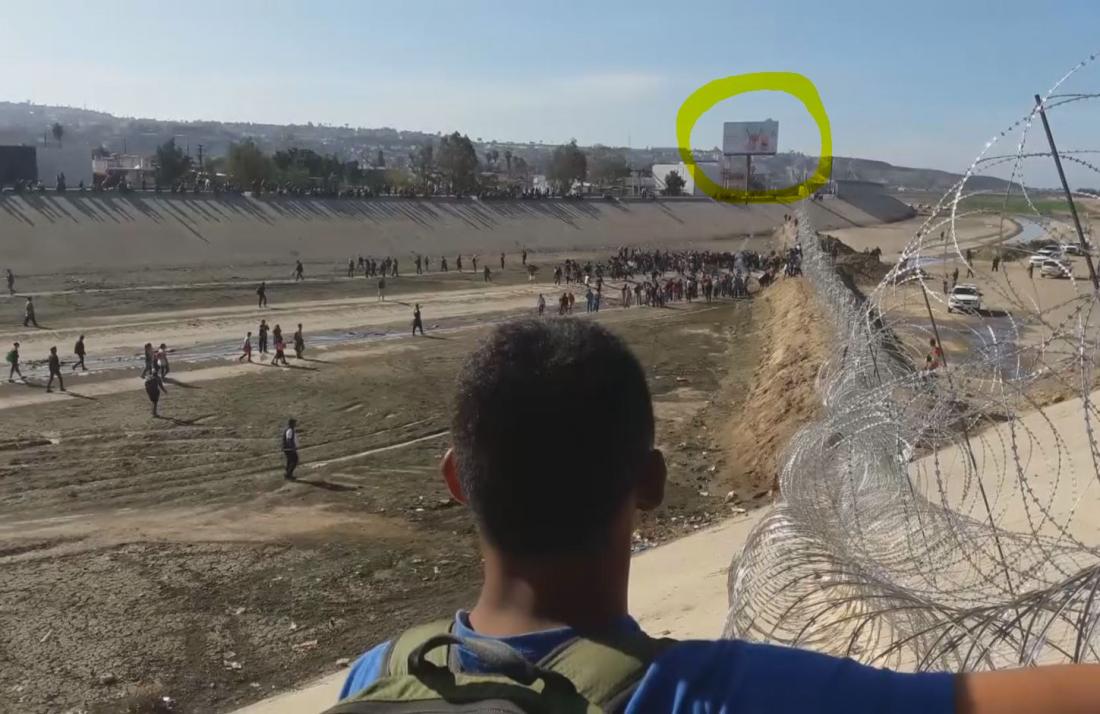
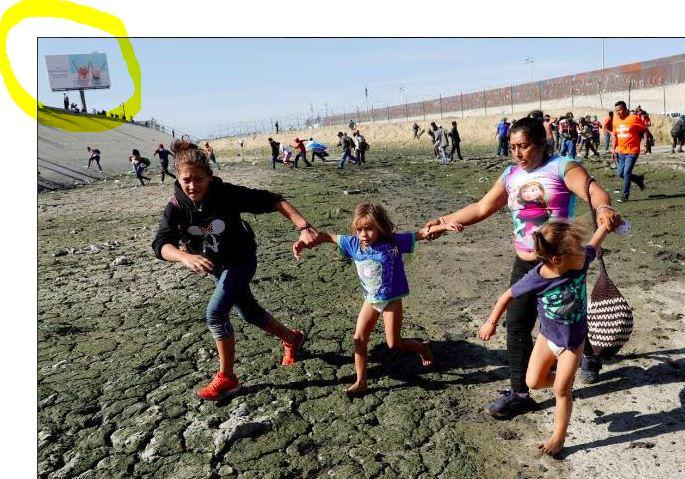
A second angle
Sergio Ortiz, a local Mexican photographer for the newspaper La Frontera in Tijuana, posted a picture on his Instagram account which shows Meza running from another angle. Kim can be seen working in the center of the photo.
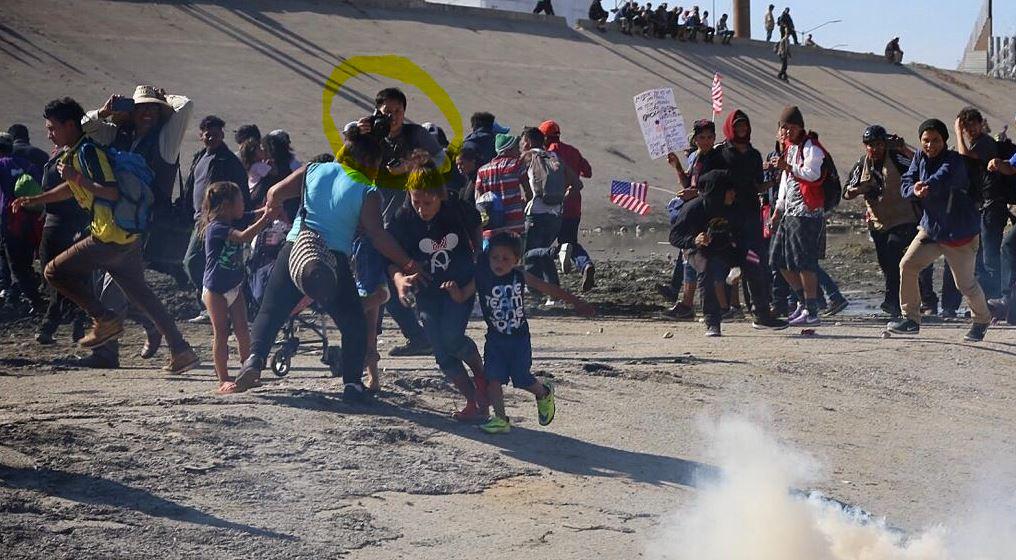
Other visual cues make it clear the photos are of the same scene:
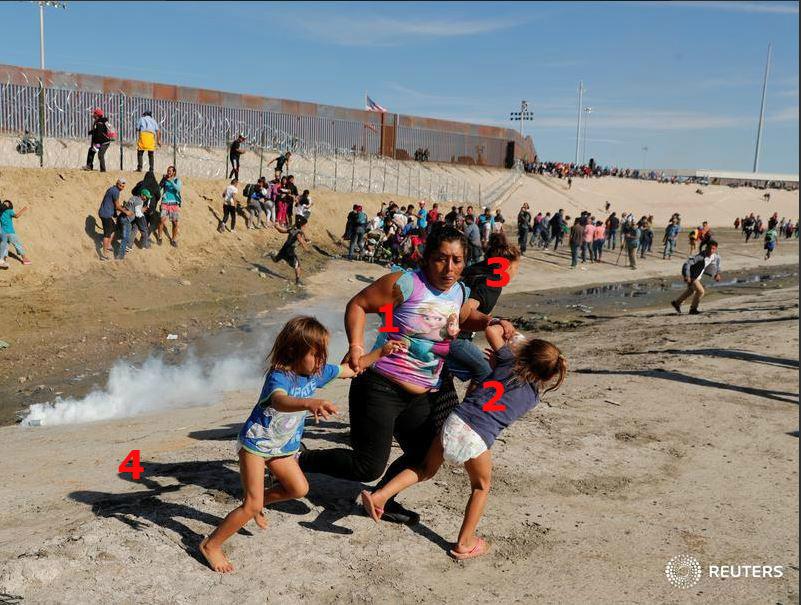
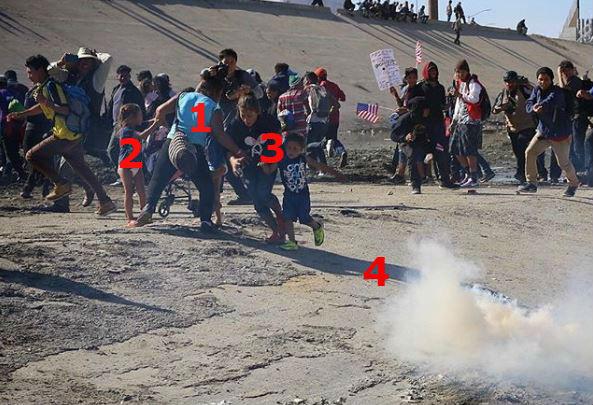
1. The distinctive blue of Meza’s shirt and her black pants.
2. Meza’s five-year-old daughter wearing a purple tee-shirt and a diaper with no pants.
3. Meza’s older daughter wearing a black sweatshirt.
4. The shadows coming off of Meza and her children are going in the same direction (toward the tear gas), proving they were taken at the same time of day.
Ortiz, who said he does not know Kim, told AFP in Spanish, "In that moment, everything went really fast."
Ortiz said he wasn’t wearing a helmet or gas mask, so he took only three pictures and then fled that area.
More evidence
BuzzFeed News later spoke with Meza about the scene.
“I thought my kids were going to die with me because of the gas we inhaled,” she told the news website.
US Customs and Border Protection also confirmed that tear gas was used along the border in San Diego after agents were hit by “projectiles.”
Today, several migrants threw projectiles at the agents in San Diego. Border Patrol agents deployed tear gas to dispel the group because of the risk to agents' safety. Several agents were hit by the projectiles. The situation is evolving and a statement is forthcoming.
— CBP (@CBP) November 25, 2018
Kim has responded to the staging allegations in Reuters’ Wider Image blog.
“Some social media users have called the photo ‘staged,’ which absolutely is not the case. At Reuters, we have strict photo guidelines. We are not allowed to mislead the viewer by making material alterations or staging scenes,” he wrote.
This section of the Reuters Handbook of Journalism shows their policy on staging pictures.

Their policy aligns with the Society of Professional Journalists Code of Ethics which states, “Journalists should never deliberately distort facts or context, including visual information. Clearly label illustrations and re-enactments.”
The Central American migrant caravan has been a continual target of false or misleading reports and social media posts.
This post was updated on December 11, 2018 to remove a link to an article in The Daily Wire. As a result of this fact check, that article was corrected.
Copyright © AFP 2017-2026. Any commercial use of this content requires a subscription. Click here to find out more.
Is there content that you would like AFP to fact-check? Get in touch.
Contact us
